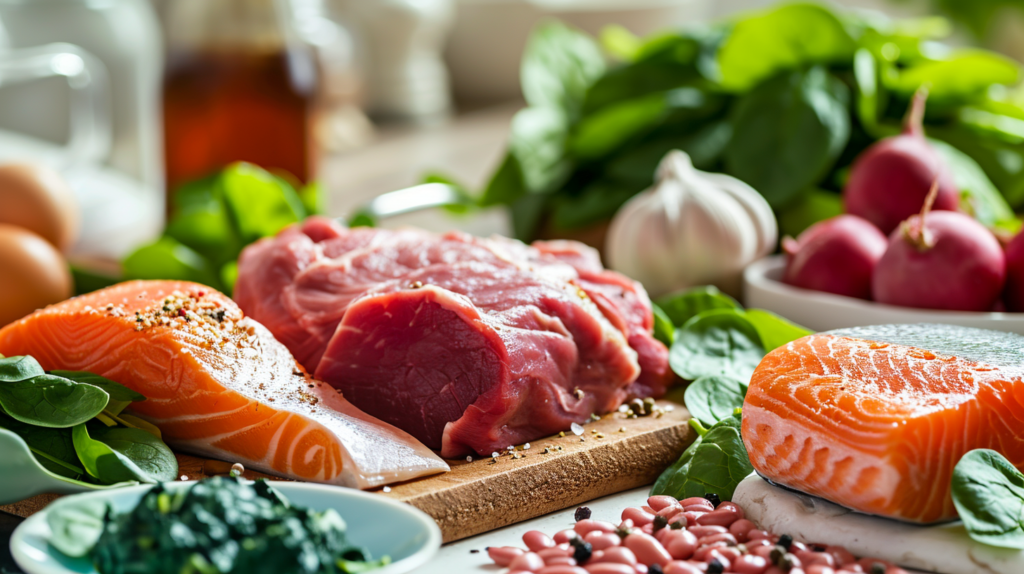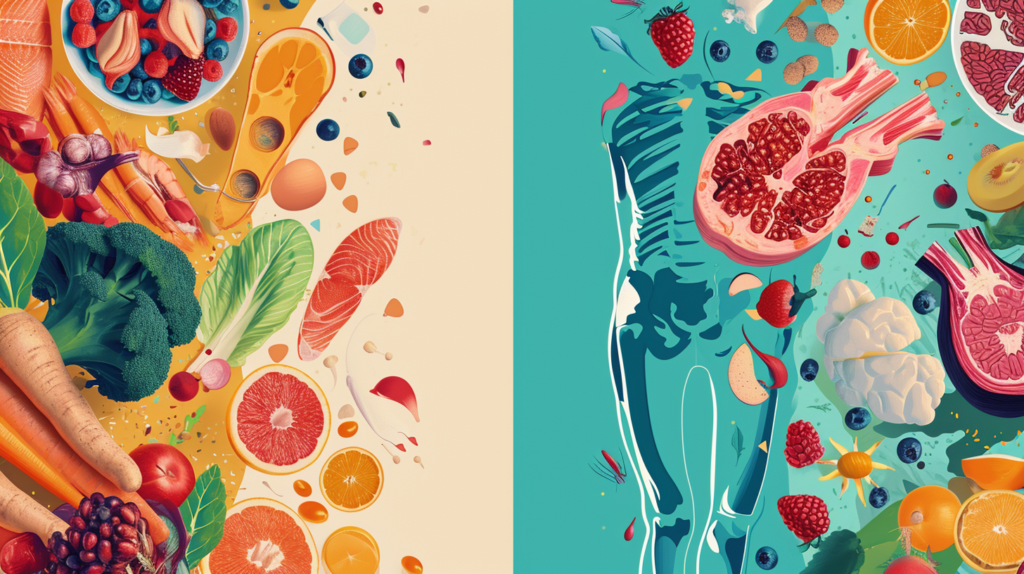The debate between a vegan diet and an animal-based diet continues to be a pivotal topic in nutritional science. Understanding the health implications of these dietary choices is crucial for informed decisions about our wellbeing. In this blog, we delve into the nutritional value, evolutionary compatibility, and long-term health effects of these diets, offering a scientific perspective on the vegan diet versus an animal-based diet.

Nutritional Value and Bioavailability
When comparing the vegan diet versus an animal-based diet, the nutrient profiles are markedly different. Animal products are rich in essential nutrients like Vitamin B12, heme iron, and Omega-3 fatty acids, which are more bioavailable than their plant-based counterparts. For instance, Vitamin B12, crucial for nerve function and blood formation, is naturally found only in animal products. The bioavailability of iron, which is vital for transporting oxygen in the blood, is significantly higher in animal foods. Plant-based sources of iron, like spinach, are less absorbable due to the presence of inhibitors like phytates.
Evolutionary Compatibility
From an evolutionary standpoint, the human body is optimized for an animal-based diet. Our digestive systems have evolved to efficiently process animal proteins and fats. This adaptation has played a crucial role in the development of our brains and overall health. Animal-based foods provided the dense, high-energy nutrition necessary for brain expansion in early humans. On the other hand, adapting to a vegan diet can be challenging for the body, as it misses out on certain nutrients that have been pivotal in human evolution.


Long-Term Health Effects
The long-term health effects of these diets are a crucial aspect of the vegan diet versus animal-based diet debate. Including moderate amounts of animal products in your diet can be beneficial for heart health, bone density, and mental wellness. Animal-based diets, rich in nutrients like Omega-3 fatty acids and Vitamin D, contribute positively to these aspects of health. Additionally, it’s important to address the misconceptions surrounding cholesterol and red meat. In the context of a balanced diet, where an individual exercises regularly and avoids harmful habits like excessive drinking, the risks associated with cholesterol in red meat are significantly mitigated. Cholesterol, in fact, plays a vital role in bodily functions, including hormone production.
In conclusion, while a vegan diet can be healthy if well-planned, it requires careful consideration to meet all nutritional needs. An animal-based diet, aligned with our evolutionary history, provides a more natural and bioavailable source of essential nutrients. It is crucial to understand that moderation and balance are key in any diet, and the inclusion of a variety of natural, unprocessed foods leads to optimal health.
Remember, whether you choose a vegan diet versus an animal-based diet, the focus should always be on unprocessed, organic foods to maintain the best possible health.